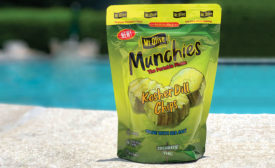Sustainable Flexible Packaging
Supplier News
California Senate Recognizes UV+EB Technology for Pollution Prevention
October 21, 2019
Product Spotlight: Pickles in Pouches
Mt. Olive Creates Pickles to Tickle Consumers’ Fancy
October 21, 2019
Converter News
Polykar to Build New Manufacturing Facility in Edmonton, Alberta
October 21, 2019
Keep the info flowing with our eNewsletters!
Get the latest industry updates tailored your way.
JOIN TODAY!Copyright ©2025. All Rights Reserved BNP Media.
Design, CMS, Hosting & Web Development :: ePublishing









